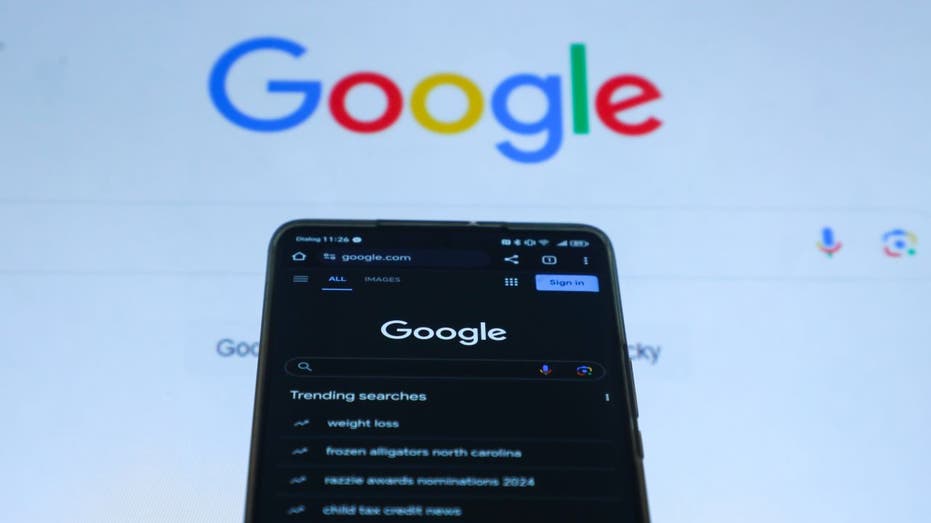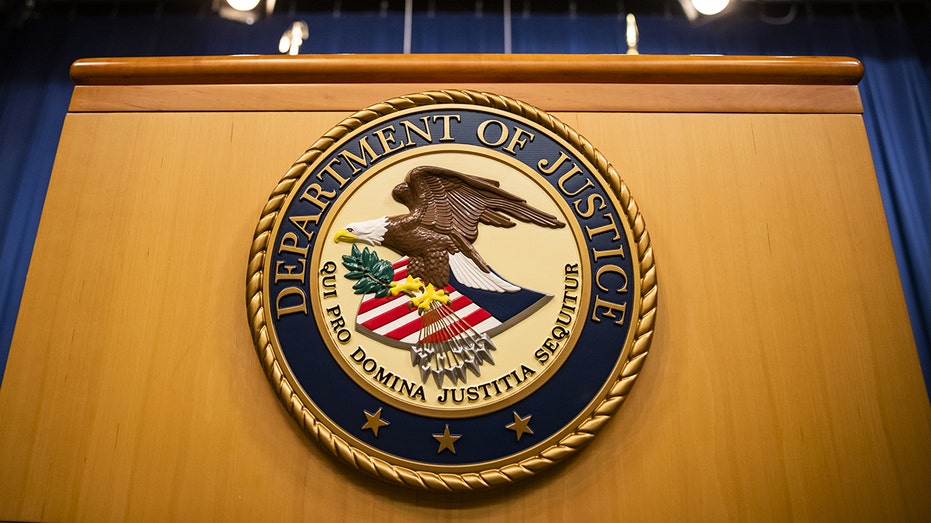Federal judge rules Google violated antitrust law
The judge's ruling sets up a second trial that will cover potential remedies for Google's search monopoly
Google could really surprise investors: Mark Mahaney
Evercore ISI senior managing director Mark Mahaney discusses whether lower interest rates will help Big Tech stocks on Varney & Co.
A federal judge ruled on Monday that Alphabet – the parent company of tech giant Google – broke federal antitrust laws as it reinforced its dominant position over online searches and related advertising.
The ruling from U.S. District Judge Amit Mehta in the District of Columbia opens the door to a second trial to determine potential remedies to Google's monopolization of the search market. It marks the Justice Department's first victory over a monopoly in over 20 years.
The Justice Department sued Google over its control of roughly 90% of the online search market – an amount that rises to 95% on smartphones. Judge Mehta noted that Google paid $26.3 billion in 2021 alone to ensure that its search engine remained the default option on web browsers and smartphones to keep its dominant market share.
"The court reaches the following conclusion: Google is a monopolist, and has acted as one to maintain its monopoly," Mehta wrote.
JUSTICE DEPARTMENT ACCUSES GOOGLE OF UNFAIRLY DOMINATING ONLINE SEARCHES IN LANDMARK TRIAL

The federal court's ruling could force changes in Google's business practices. (REUTERS/Steve Marcus/File Photo/File Photo / Reuters Photos)
Mehta's ruling paves the way for a second trial to determine potential remedies for Google's monopoly, like requiring the company to stop paying billions of dollars annually to smartphone makers to keep its search engine as the default option.
"The default is extremely valuable real estate… Even if a new entrant were positioned from a quality standpoint to bid for the default when an agreement expires, such a firm could compete only if it were prepared to pay partners upwards of billions of dollars in revenue share and make them whole for any revenue shortfalls resulting from the change," Mehta wrote.
"Google, of course, recognizes that losing defaults would dramatically impact its bottom line. For instance, Google has projected that losing the Safari default would result in a significant drop in queries and billions of dollars in lost revenues," he added.
| Ticker | Security | Last | Change | Change % |
|---|---|---|---|---|
| GOOGL | ALPHABET INC. | 322.86 | -8.39 | -2.53% |
AI GIANT NVIDIA FACES CALLS FROM PROGRESSIVE GROUPS FOR AN ANTITRUST PROBE

Google pays billions of dollars annually to preserve its search functionality as the default option on web browsers and smartphones. (Photo by Thilina Kaluthotage/NurPhoto via Getty Images / Getty Images)
Google President of Global Affairs Kent Walker said in a statement provided to FOX Business: "This decision recognizes that Google offers the best search engine, but concludes that we shouldn’t be allowed to make it easily available. We appreciate the Court’s finding that Google is ‘the industry’s highest quality search engine, which has earned Google the trust of hundreds of millions of daily users’, that Google ‘has long been the best search engine, particularly on mobile devices’, ‘has continued to innovate in search’ and that ‘Apple and Mozilla occasionally assess Google’s search quality relative to its rivals and find Google’s to be superior.’"
"Given this, and that people are increasingly looking for information in more and more ways, we plan to appeal," Walker added. "As this process continues, we will remain focused on making products that people find helpful and easy to use."
The Department of Justice did not immediately respond to a request for comment.
EU WANTS GOOGLE AD BUSINESS BROKEN UP OVER COMPETITION ISSUES

The Justice Department filed the suit against Google's alleged search monopoly in 2020. (Samuel Corum/Bloomberg via Getty Images / Getty Images)
The decision is the first major court ruling against Big Tech firms in a series of cases alleging that those companies have allegedly engaged in monopolistic business practices.
In the last four years, federal antitrust regulators have also filed lawsuits against Meta – the parent of Facebook and Instagram – as well as Amazon and Apple over allegations the Big Tech companies have illegally maintained monopolies. Another case against Google over its advertising technology is scheduled to go to trial in September.
GET FOX BUSINESS ON THE GO BY CLICKING HERE
When the Google search case was filed in 2020, it marked the first time in a generation that the federal government accused a major corporation of maintaining an illegal monopoly.
Microsoft settled the Justice Department's suit, which accused the company of forcing its Internet Explorer web browser on Windows users, in 2004.
Reuters contributed to this report.




















